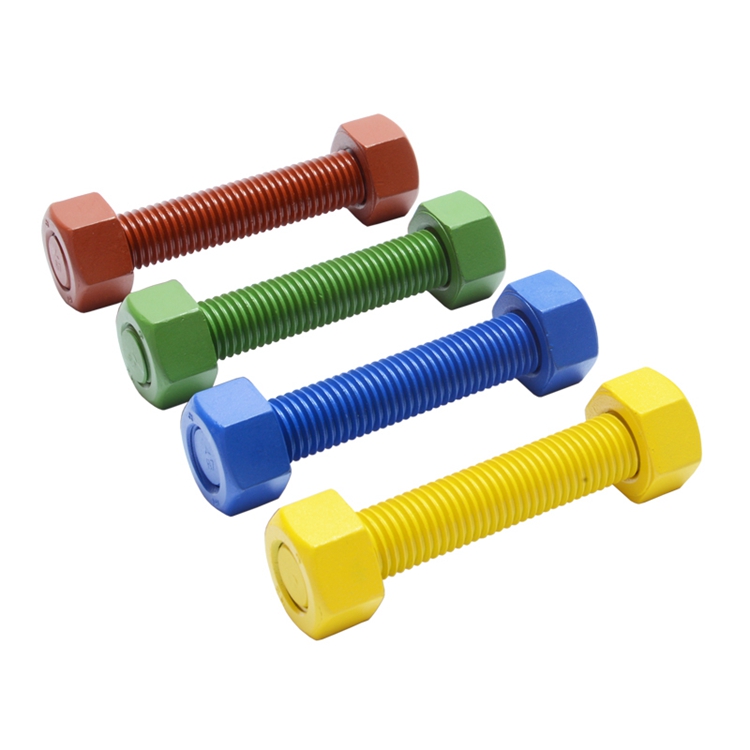Export Opportunities for Expansion Bolts in Global Markets
Nov . 27, 2024 20:35 Back to list
Export Opportunities for Expansion Bolts in Global Markets
Expansion Bolts Exporters A Comprehensive Overview
Expansion bolts play a critical role in the construction and repair sectors, serving as essential fastening devices that offer reliable support in various applications. This article delves into the world of expansion bolts exporters, their significance, market trends, and challenges faced in the global arena.
Understanding Expansion Bolts
Expansion bolts are specialized fasteners designed to anchor objects to solid surfaces, often used in concrete, masonry, and other robust materials. They consist of a bolt, a sleeve, and a wedge mechanism. When the bolt is tightened, the wedge expands the sleeve against the walls of the drilled hole, thus securing the bolt in place. This feature makes them invaluable for mounting heavy equipment, securing railings, and various infrastructure projects.
The Role of Exporters
Exporters of expansion bolts facilitate international trade, providing crucial supplies to construction firms, manufacturers, and distributors across the globe. They source high-quality products from manufacturers, ensuring compliance with international standards and specifications. By doing so, they enable construction projects to maintain quality while often benefiting from cost efficiencies associated with bulk purchasing.
Market Trends
The global expansion bolts market has been witnessing notable growth, driven by several factors. The rapid urbanization and industrialization across countries, particularly in Asia-Pacific and North America, have fueled demand for reliable fastening solutions in construction. Major infrastructure projects, including bridges, highways, and commercial buildings, require robust anchoring solutions, further boosting the market.
expansion bolts exporters

Additionally, advancements in materials technology have led to the development of high-performance expansion bolts, increasing their applicability in diverse sectors like automotive, aerospace, and manufacturing. Exporters are increasingly focusing on product innovation, creating bolts that can withstand extreme weather conditions, corrosion, and other environmental challenges.
The trend of sustainability is also reshaping the market. Exporters are exploring eco-friendly materials and production processes, responding to the growing demand from consumers and regulatory bodies for environmentally responsible products. This includes the use of recycled materials and implementing sustainable practices throughout the supply chain.
Challenges Faced by Exporters
Despite the positive outlook, expansion bolts exporters face several challenges in the competitive landscape. The fluctuating prices of raw materials, such as steel and other alloys, can significantly impact production costs. Exporters must navigate these variations to offer competitive pricing while maintaining quality.
Regulatory compliance is another challenge. Each country has its own set of regulations regarding product standards, safety, and reliability. Exporters must ensure that their products meet these standards to avoid penalties and ensure smooth market entry.
Moreover, the logistics of exporting can be complex, involving intricate supply chain management to coordinate shipments, customs clearance, and minimize delays. Exporters must also contend with geopolitical factors, trade tariffs, and international relations that can affect supply chains.
Conclusion
In conclusion, expansion bolts exporters play a vital role in the global market by providing essential fastening solutions that support various industries. With ongoing urbanization and the push for sustainable practices, the market for expansion bolts is poised for continued growth. While challenges such as fluctuating raw material prices and regulatory compliance must be addressed, the future remains promising. Exporters who adapt to the evolving landscape, focus on innovation, and prioritize customer needs will thrive in this competitive environment, ultimately contributing to the success of the global construction and manufacturing sectors.
Latest news
-
High-Quality Panel Stud Bolt Reliable Panel Stud Bolt Factory & Suppliers
NewsJul.08,2025
-
High-Precision Fine Thread Locknuts Manufacturer & Supplier Custom Solutions
NewsJul.08,2025
-
PH Imperial Stud Bolt – High Strength Fasteners from Leading Supplier & Factory
NewsJul.07,2025
-
High-Quality Allen Wrench Bolts Leading Factory, Company & Suppliers
NewsJul.07,2025
-
Wholesale Ball Stud Bolt - High Quality Supplier & Factory Price Reliable Wholesale Ball Stud Bolt Company
NewsJul.06,2025
-
High-Strength Alloy Bolts Manufacturer & Supplier Quality Alloy Fasteners Factory
NewsJul.06,2025
